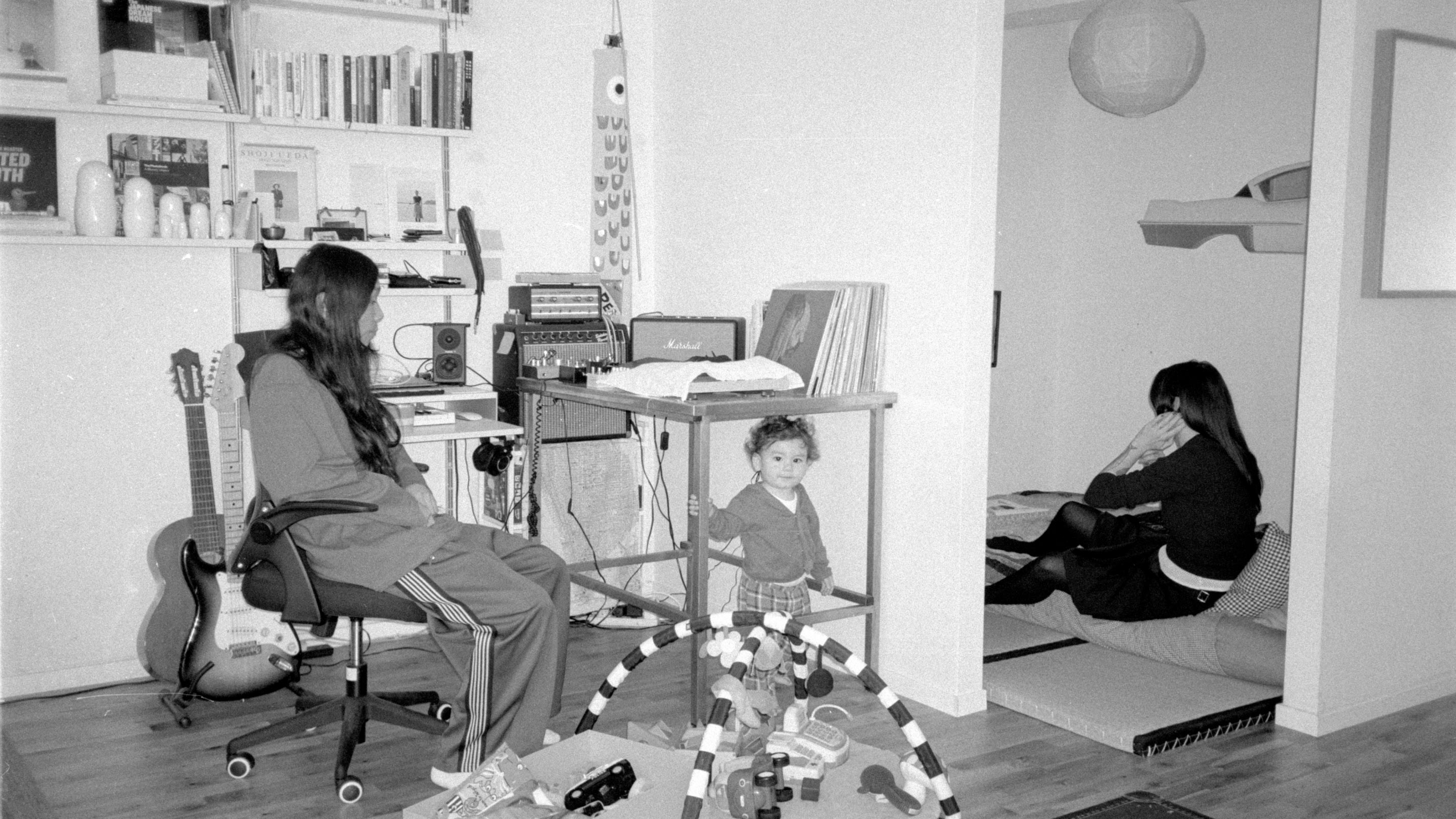
yuki & helen
Ren just precedes to do impressive falling techniques. Who is he most like out of the two of you?
Helen: I think he’s more like Yuki, a performer. He’s just super confident and dances a lot, loves the Macarena!
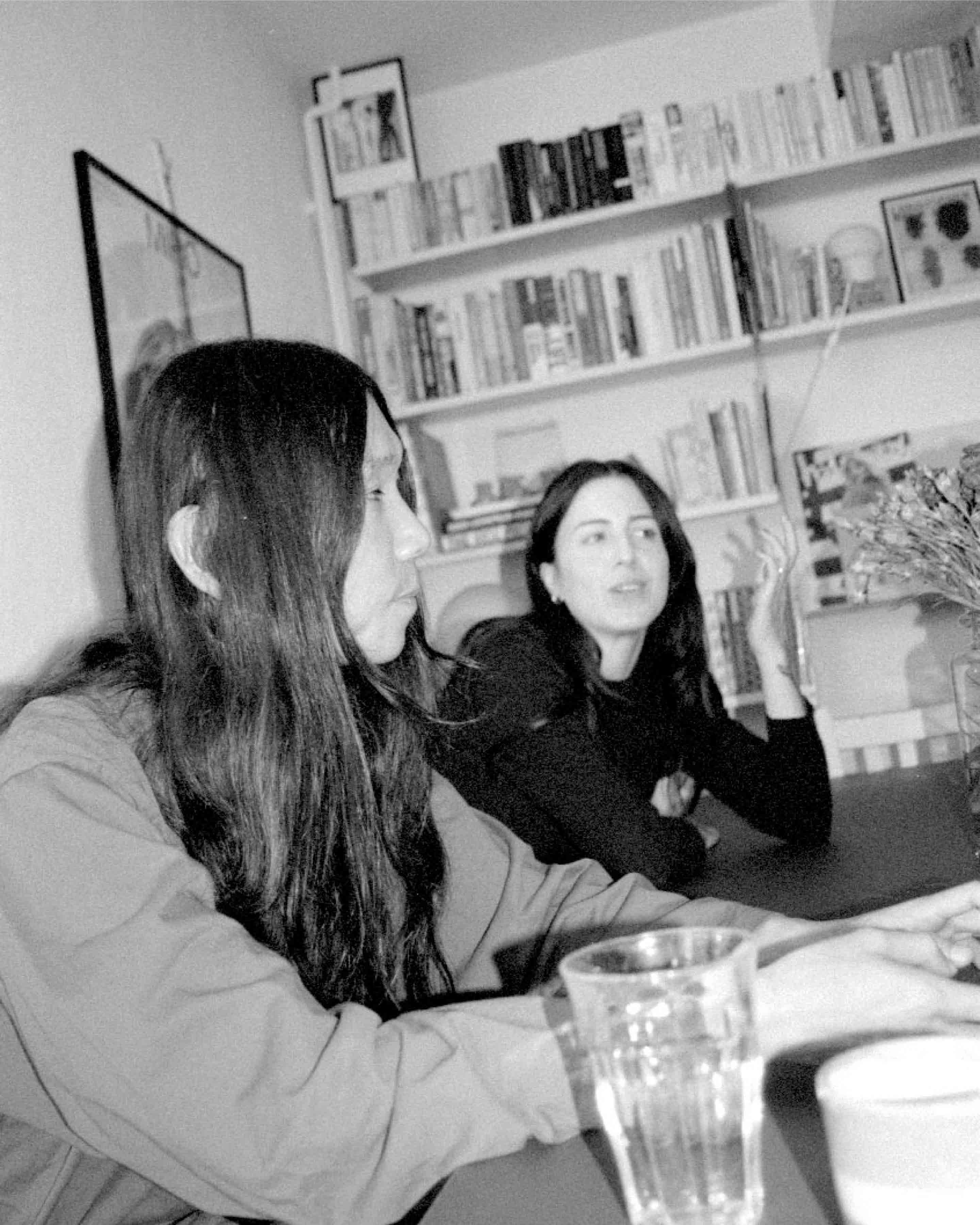
What are some things you admire about each other?
Helen: I really like the contrast between his stage persona and how he is every day, soft and gentle.
Yuki: Tidy!
Helen: Yes, tidy. You’re a really nice boyfriend, caring and thoughtful.
Yuki: Obviously, a bit of the same, apart from the different personalities. Helen is very organised in life.
Helen: I like the fact that you’re quite gentle and we don’t have to fight each other in social situations. Neither of us are the more dominant personality.
Yuki: I’m literally here all the time, a hermit.
Yuki: Tidy!
Helen: Yes, tidy. You’re a really nice boyfriend, caring and thoughtful.
Yuki: Obviously, a bit of the same, apart from the different personalities. Helen is very organised in life.
Helen: I like the fact that you’re quite gentle and we don’t have to fight each other in social situations. Neither of us are the more dominant personality.
Yuki: I’m literally here all the time, a hermit.
Yuki, you’re known to wear red, when did that start and does it have any significance?
Yuki: It started about six or seven years ago. I just like the colour and think I look good in it.
Helen: It’s a nice colour on you.
Helen: It’s a nice colour on you.
neither of us are the more dominant personality.

While Helen, you’ve got a very extensive and not-so-kid-friendly Commes des Garcons collection, do you ever wear it around Ren?
Helen: Actually I have this special Japanese apron now. After I get dressed in the morning I put it on, it’s like an apron with long sleeves.
Yuki: It’s like an old apron that people would wear on top of the Kimono. It’s something that my gran used to wear. It’s called a 割烹着 (kappogi).
Yuki: It’s like an old apron that people would wear on top of the Kimono. It’s something that my gran used to wear. It’s called a 割烹着 (kappogi).
So you are basically putting yourself in a straight jacket! do you two have the same taste?
Yuki: Somehow we do, but we also appreciate eachother’s own aesthetics. Especially for fashion.
Helen: A lot of our reference points are the same, even if our interpretation is different. You wear my clothes and I wear yours.
Yuki: We’re the same size.
Helen: Sometimes I wear Yuki’s shoes, but he can’t wear mine.
Yuki: Since I’m Japanese, apparently I have wide and fat feet. Apparently Westerners have more of a flat foot, less of an arch. Ren got the Japanese side of it.
Helen: A lot of our reference points are the same, even if our interpretation is different. You wear my clothes and I wear yours.
Yuki: We’re the same size.
Helen: Sometimes I wear Yuki’s shoes, but he can’t wear mine.
Yuki: Since I’m Japanese, apparently I have wide and fat feet. Apparently Westerners have more of a flat foot, less of an arch. Ren got the Japanese side of it.
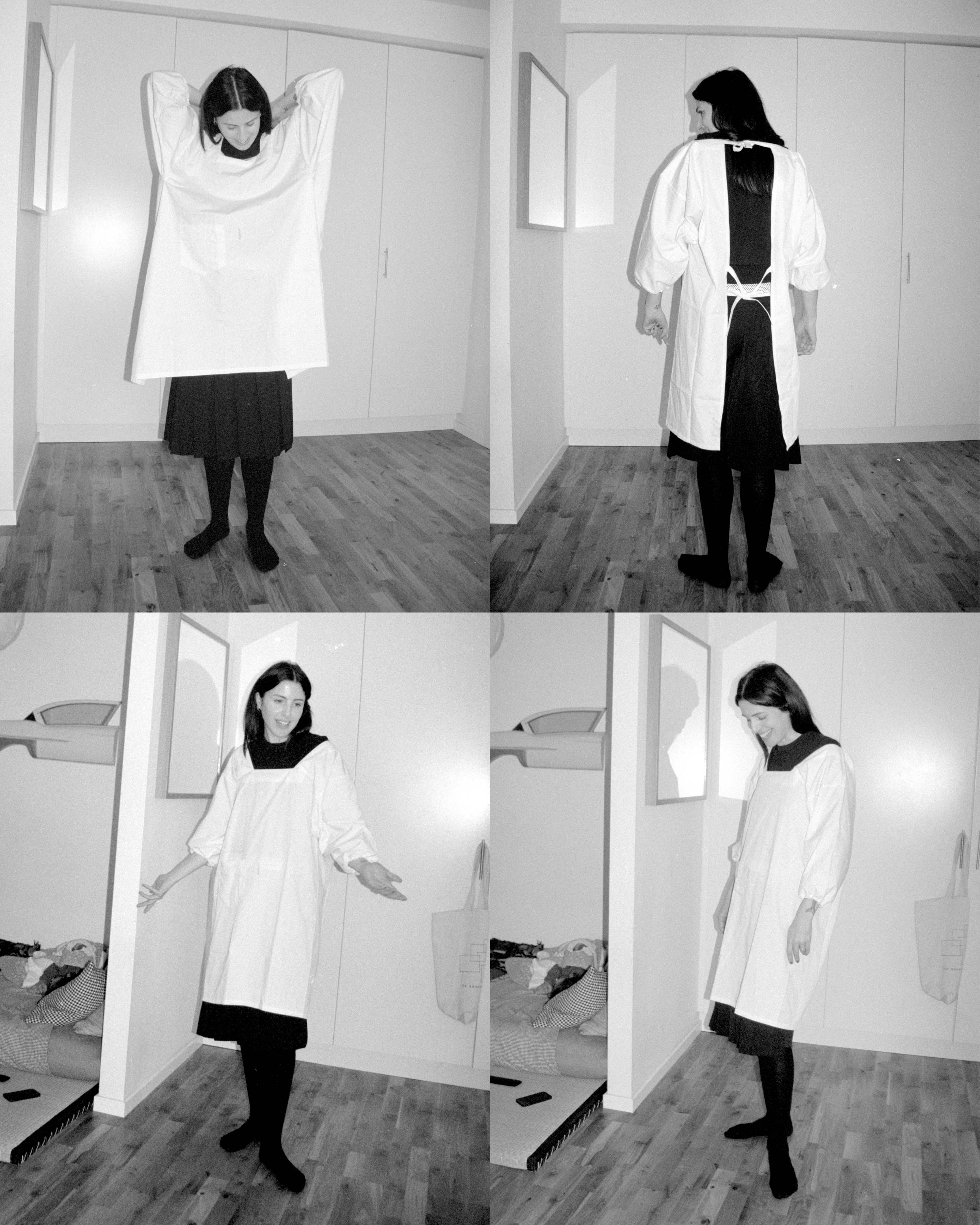
It must affect how people walk.
Yuki: Maybe. This is just my guess, but since we sit on our knees with the feet behind on a tatami and at a low table might be what has caused it. My parents’ generation had to sit like this until the dad came home. But I am always home, so!
Tell us about the bed situation you have created with the tatami mats.
Helen: They came from a place in Malmö. I think they might be produced in China, so the quality is below par. Then we have a Japanese futon on top. Initially, the idea was to be able to put them away so that Ren could have a play area. Now we all sleep in bed together at night, but one of us usually falls out.
Yuki: And of course that’s me.
Yuki: And of course that’s me.
now we all sleep in bed together at night, but one of us usually falls out.
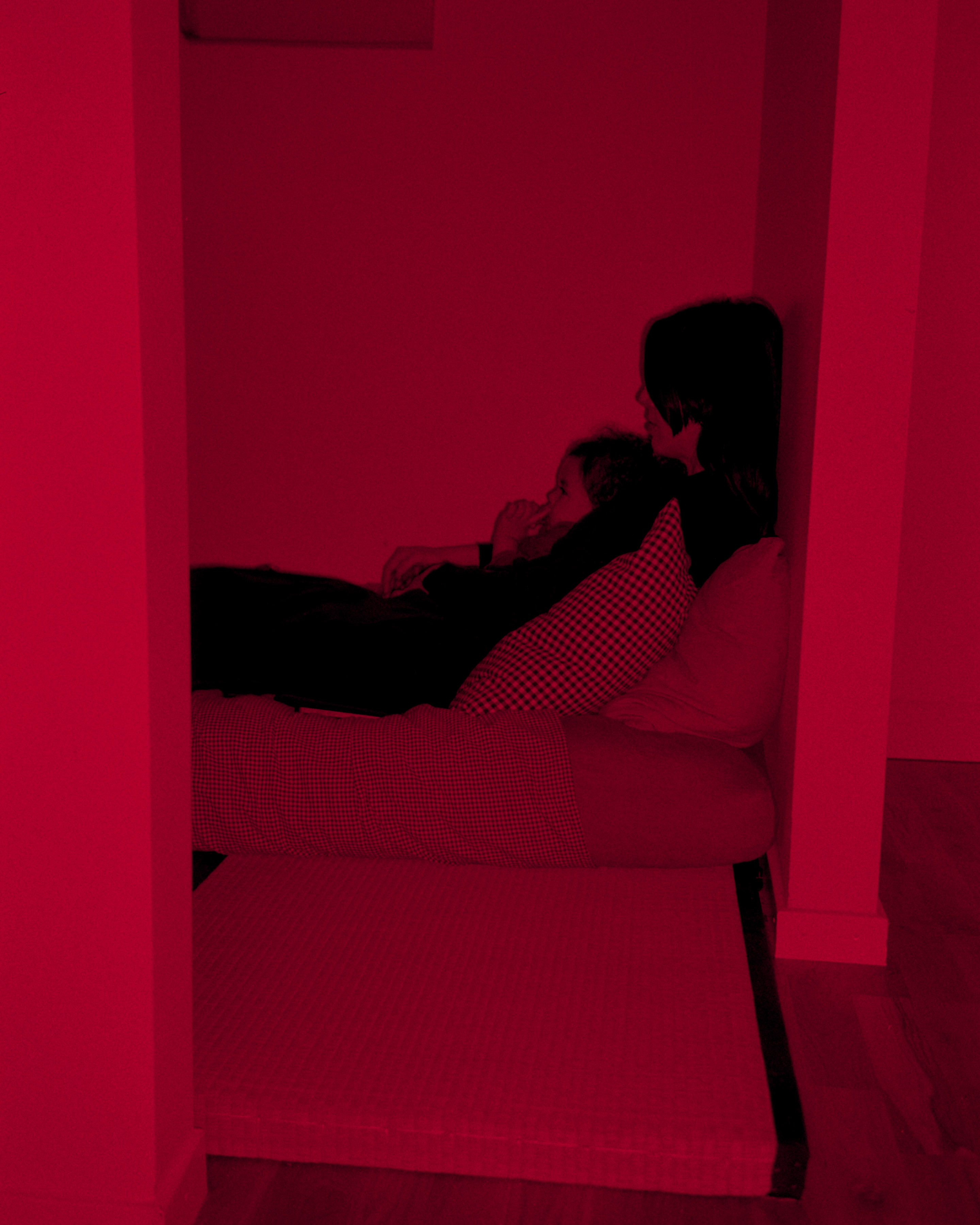
What are some other traditions that you blend together in your family?
Yuki: I think I am very integrated.
Helen: You are the most British Japanese person I have ever met. Like your sense of humour.
Yuki: I think so too! Even just appreciating the bad food in the UK.
Helen: I guess in our family I do a lot of cooking, like semi-British food. Like last Christmas, since Yuki doesn’t really have an experience of Christmas, we did it in a British way, had a tree, ate British food, things like that.
Helen: You are the most British Japanese person I have ever met. Like your sense of humour.
Yuki: I think so too! Even just appreciating the bad food in the UK.
Helen: I guess in our family I do a lot of cooking, like semi-British food. Like last Christmas, since Yuki doesn’t really have an experience of Christmas, we did it in a British way, had a tree, ate British food, things like that.
helen, i remember you telling me you once had gout at christmas.
Helen: Basically, I was in my early twenties, we had goose for Christmas. Then my dad took the leftover goose meat and fat and made a cassoulet, which is a rich French stew with beans, breadcrumbs and sausages.
Yuki: You basically OD on fat.
Helen: All of the fluid in the foot crystallises. I was too embarrassed to tell people at work it was gout, so I told them I had sprained my ankle. Felt like I was Henry VIII.
Yuki: You basically OD on fat.
Helen: All of the fluid in the foot crystallises. I was too embarrassed to tell people at work it was gout, so I told them I had sprained my ankle. Felt like I was Henry VIII.
i felt like i was henry viii.
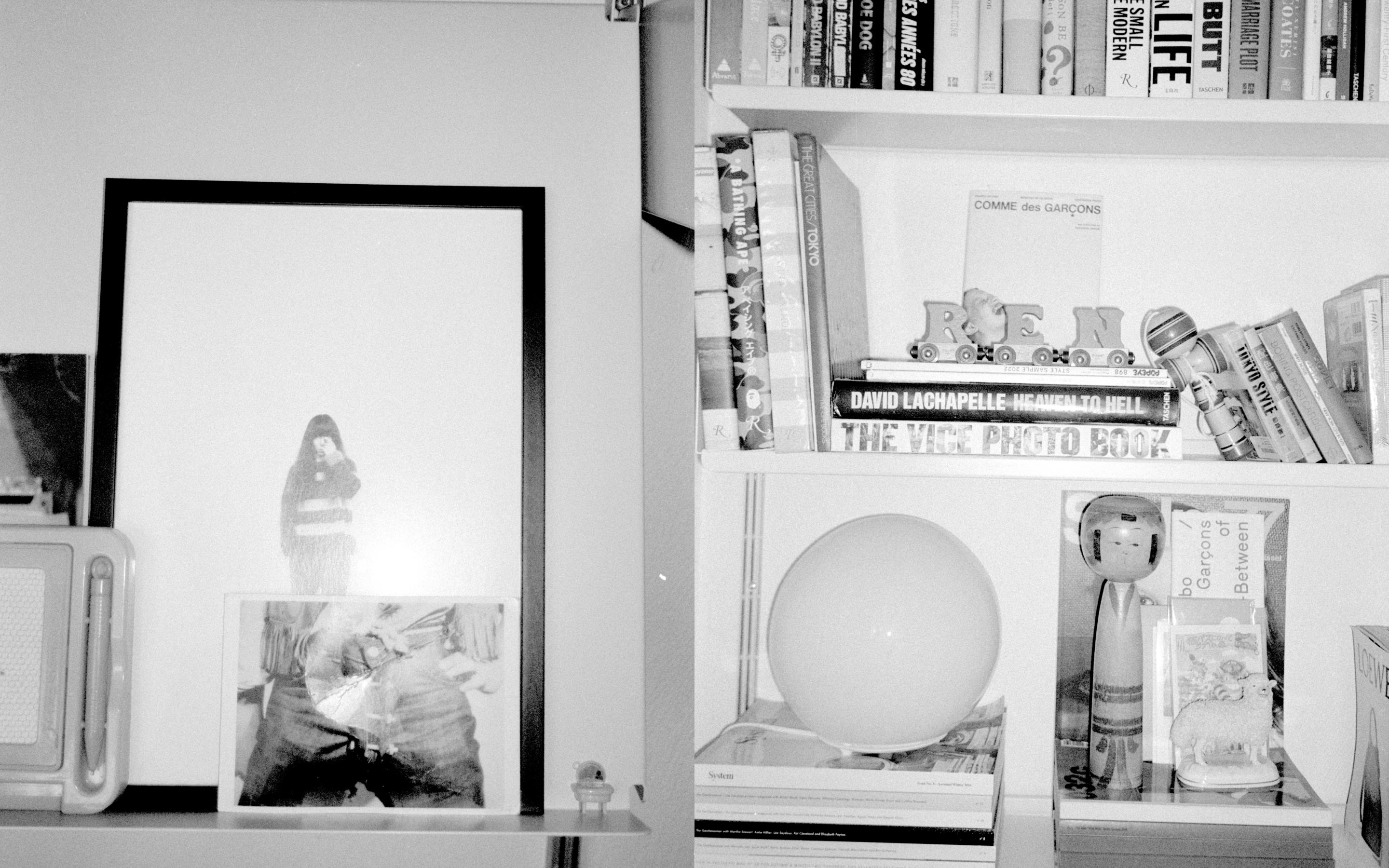
What about Japanese influences?
Yuki: In Japan before each meal we say “いただきます” (itadakimasu) which means thanks for the food, thanking the person who cooked but also for the ingredients. Since Japan had more of a pagan religion before Buddhism and every thing was considered sacred.
Helen: It’s also for my benefit, so I know how to be polite. It’s also nice to do it for Ren’s sake. We say it when we leave the house and when we return.
Yuki: Instead of “see you later” which is a one-way greeting, the person leaving says “いただきます” (itadakimasu) and the person at home say “行ってらっしゃい” (itterasshai). When you come back, the person who comes back says “タダイマス” (tadaimasu) which means “I’m home” and the person at home greets back “おかえり” (okaeri) which means “welcome home”.
Helen: It’s also for my benefit, so I know how to be polite. It’s also nice to do it for Ren’s sake. We say it when we leave the house and when we return.
Yuki: Instead of “see you later” which is a one-way greeting, the person leaving says “いただきます” (itadakimasu) and the person at home say “行ってらっしゃい” (itterasshai). When you come back, the person who comes back says “タダイマス” (tadaimasu) which means “I’m home” and the person at home greets back “おかえり” (okaeri) which means “welcome home”.
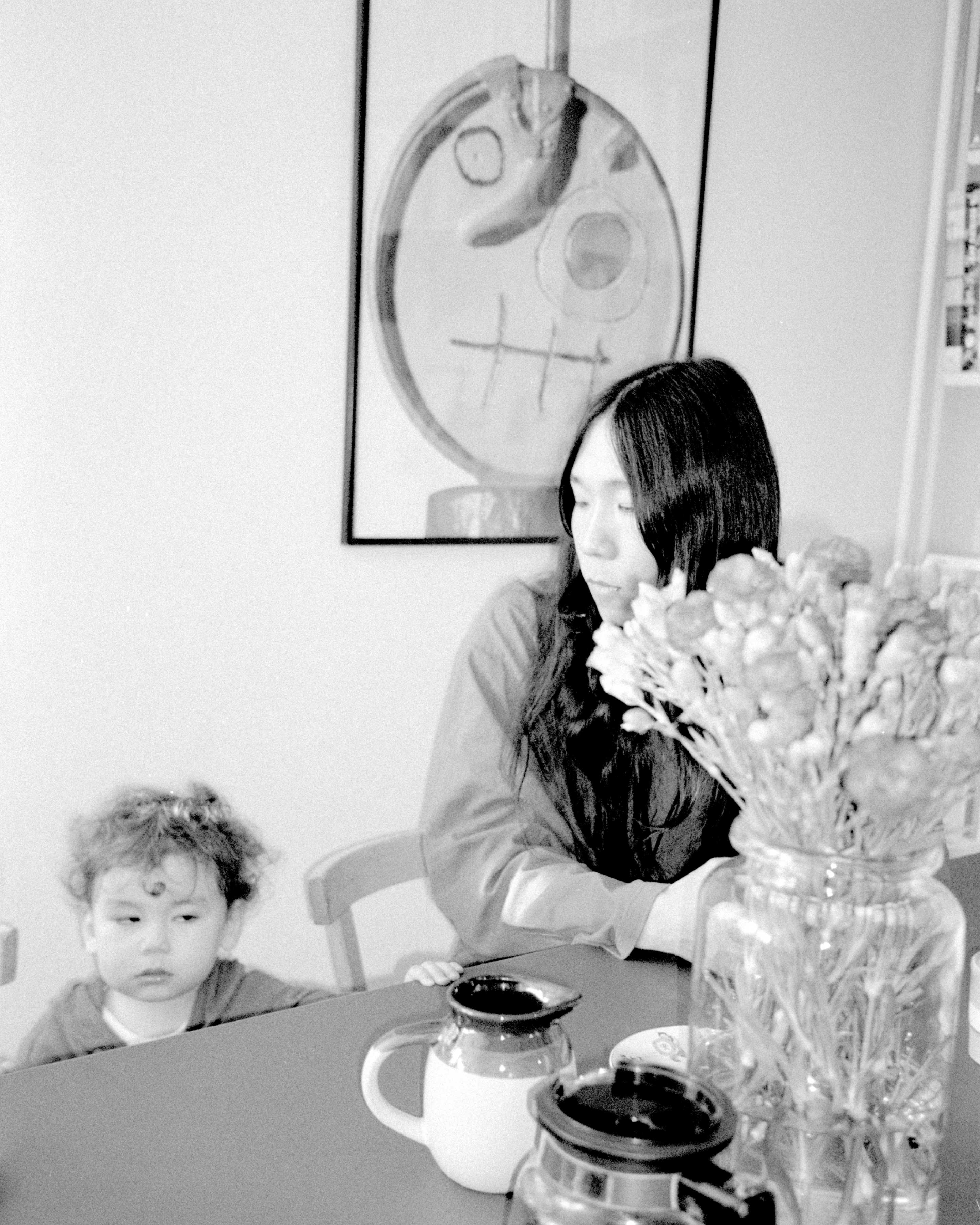
japan has some similarities to Sweden.
Yuki: There’s a greater similarity between Sweden and Japan, than between the UK and Japan. The way people respect each other, are more reserved and almost shy. The cleanliness. How food and fashion is appreciated, people dress well and eat well. That’s probably why Japanese people find it easier to settle here and vice versa. I’ve noticed there’s more quality Japanese places here than in London. Not in quantity but in quality.
Which ones?
Yuki: There’s one in Vasastan called Totemo Ramen. I really like them because of how they present themselves, the restaurant is so tiny, like it is in Japan. It’s just the counters and a few tiny tables, so what you do is basically get in, eat ramen and get out. There’s no side menu, just ramen.
get in, eat ramen and get out.

What drew you to Sweden?
Helen: I wanted a different pace of life. I had heard about Swedish work culture: fair working conditions, reasonable working hours, long holidays. I actually expected it to be boring, but was pleasantly surprised. I needed a change from living in Dalston and going out all the time.
What was it like for you to leave London?
Yuki: Similar to Helen. The life of touring with a band, getting wasted all the time, was fun, but had a lack of substance. I started to question whether I could do it into my old age—do I want to be the old guy at the show? Then the pandemic happened and it was a good time to make a change. Before that, Sweden was not on my radar. My impression was that it was cold and expensive. But moving here was a different experience.
Helen, you said once that nothing had happened during the pandemic!
Helen: Met Yuki, had a dog, got pregnant, moved house, got engaged and married. I didn’t leave Sweden for a year.
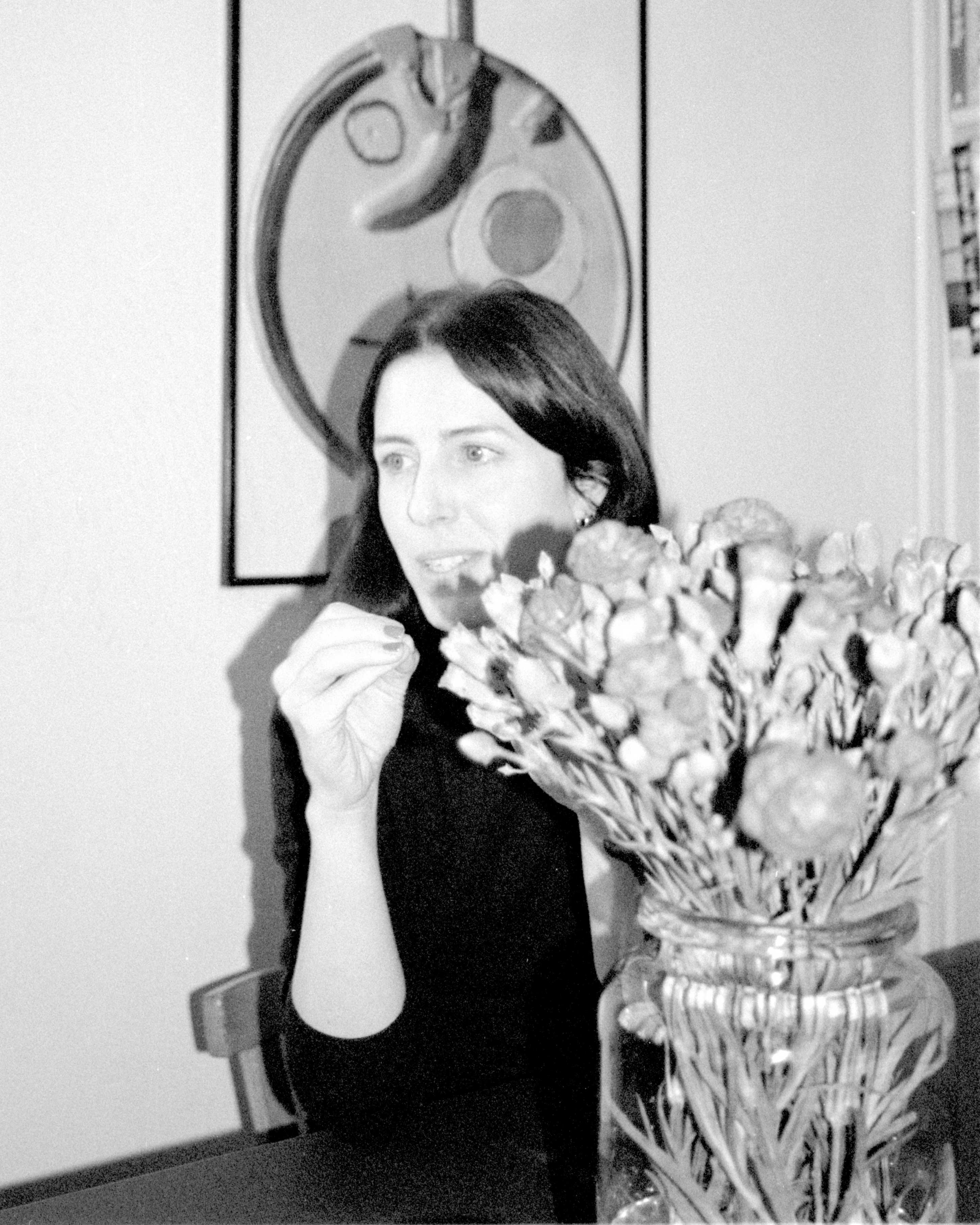
What was it like getting back on stage with bo ningen?
Yuki: Yeah, it was beautiful! It felt pretty great to be back on stage, to my real self. I almost forgot that I am a musician. The first ever show after Covid was actually a festival in the UK, called End of the Road. We were sort of like a secret act after all the other acts had finished playing, and we were on at two in the morning. It felt so bizarre for like five minutes, just being out in front of the crowd, there were so many people, it took a while to take in. It felt really fresh and that was the first time in ages that I actually felt nervous before a show.
i wouldn’t say we’re dad rock but we’re not a young band anymore.
As a band you’ve managed to carve out your own sound, how conscious has that been and how easy is that to maintain when the industry is so focused on commerciality? Seems like you have somehow managed to stay true to what you set out to do.
Yuki: We treat rock music as a form of art rather than a part of the music industry—I find that really boring and kind of despise it. We have managers, but we kind of manage the direction ourselves. Since we’re not that big, the label doesn’t tell us what to do. It’s still us four, we’ve known each other for 15 years or so, spending more time with each other than anyone. We kind of love and hate each other, kind of like family. We’ve have also aged as a band. I wouldn’t say we’re dad rock, but we’re not a young band anymore.
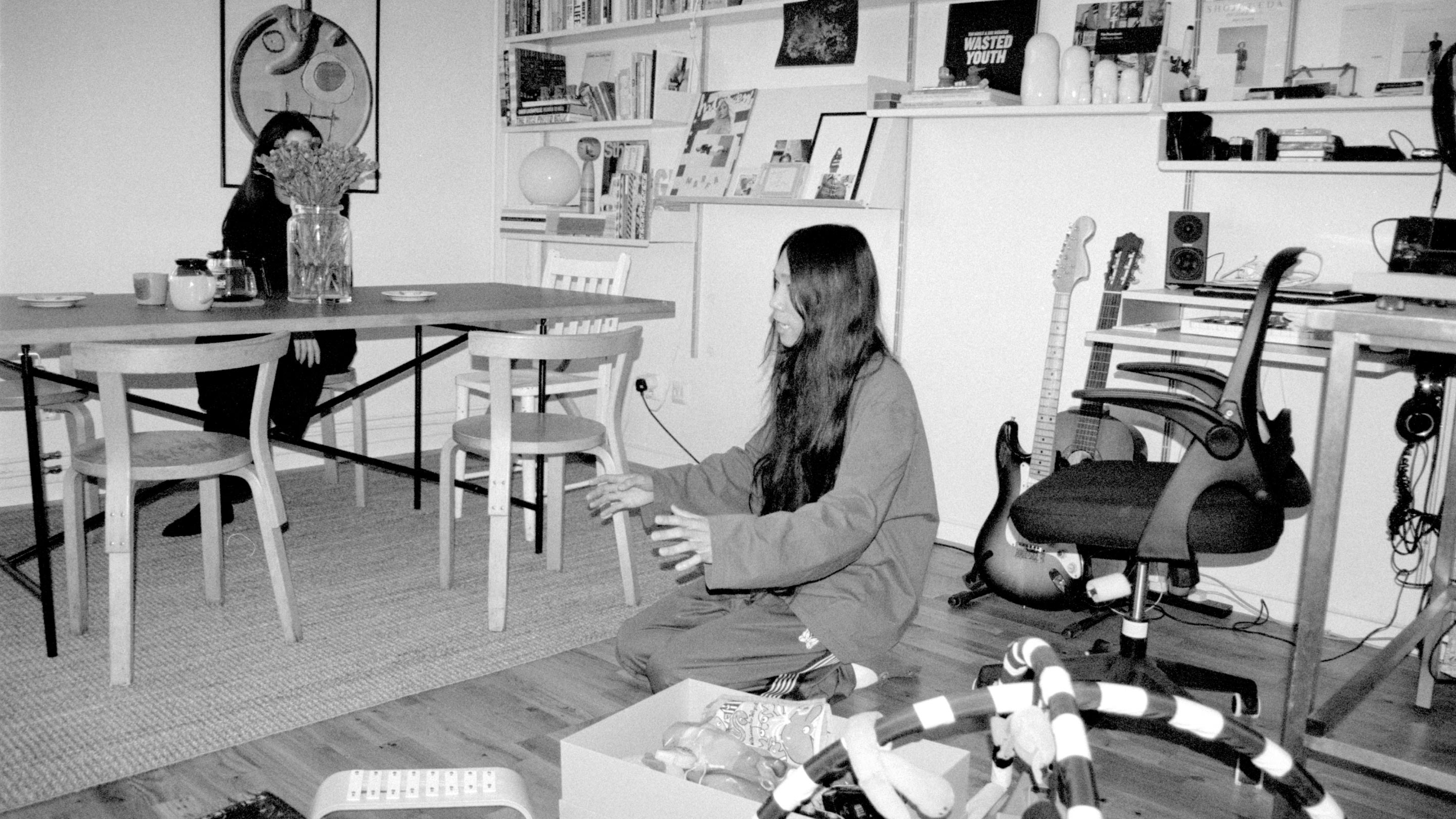
How essential has London been to the band? you had your start there, the scene drew you there.
Yuki: It was all guitar music back then, which is back again now. It was absent for a long time. When we started out, in the post- Indie phase, we came as a sort of shock to the East London scene, we were all Japanese and had super long hair, crazy outfits and a stage show. No one knew what to think.
Who would you say your fans are now?
Yuki: In the UK a funny thing is happening. Our original fan base has stopped going out. Now we have kids coming to the shows. They don’t know that we’ve been playing since they were about five years old. They think they’ve just discovered a new band from Japan. We also have the parents of these kids, slightly older than us, who are really into music. And of course old geezers.
my usual bed time is when i often start playing!
Does the rock and roll myth still exist?
Yuki: It has kind of gone. Our tours have become softer, maybe even a bit tame. My usual bed time is when I often start playing!
For someone as chilled as you in person, but with such a strong stage persona, it must feel somewhat draining?
Yuki: It’s more draining when I come off stage and it’s expected that you still have to be that person. Or if we do a fashion shoot, there’s no music there—it’s just a set and usually it’s early in the morning and it’s expected that we perform. We’re musicians not models.

Having been at Urban Outfitters and now at SneakersnStuff, you’ve been a part of shaping youth culture, what has that evolution been like?
Helen: Something I’ve noticed from the people around me is that it is fine to age out of the demographic that you are pitching towards, but you need to recognize your own growing irrelevance. And you need to understand that you’re not part of the zeitgeist anymore. I’m a thirty six year old mother, not part of a genre defining moment.
But at some point you also were! sometimes people just continue to draw on that sole reference of having been part a resurgent trend.
Helen: I have a theory on the “resurgence” of Indie Sleaze, it is just a way for people our age to make themselves relevant again. I’m not sure it is happening again, but it makes people our age feel part of the conversation. It’s only being perpetuated by people of our generation out of nostalgia, I don’t see it being referenced again by what people are wearing. It’s not being adopted by Gen Z.

sometimes when people talk about sustainability i just want to detonate a vest!
What are some observations that you have made In terms of what the streetwear industry looks like, the constant creation of hype?
Helen: It’s definitely been a bubble economy and everyone has been invested in the hype machine, but we are past the peak of that now. Sustainability concerns are coming into it now, and people are starting to reject the cahoots that the industry has contributed to, the merry-go-round, driven by the number of releases. The thing is, the majority of people buying it are not the final customers, but resellers.
How does the industry deal with that shadow economy?
Helen: There are raffle mechanics and other measures that tries to ensure that the product goes to the end customer, but at the end of the day a sale is a sale. Everyone has kind of been benefitting from the way that it is at the moment. But it’s changing, some people are starting to get bored of it, there’s fatigue around the sustained attention required to keep it all going.
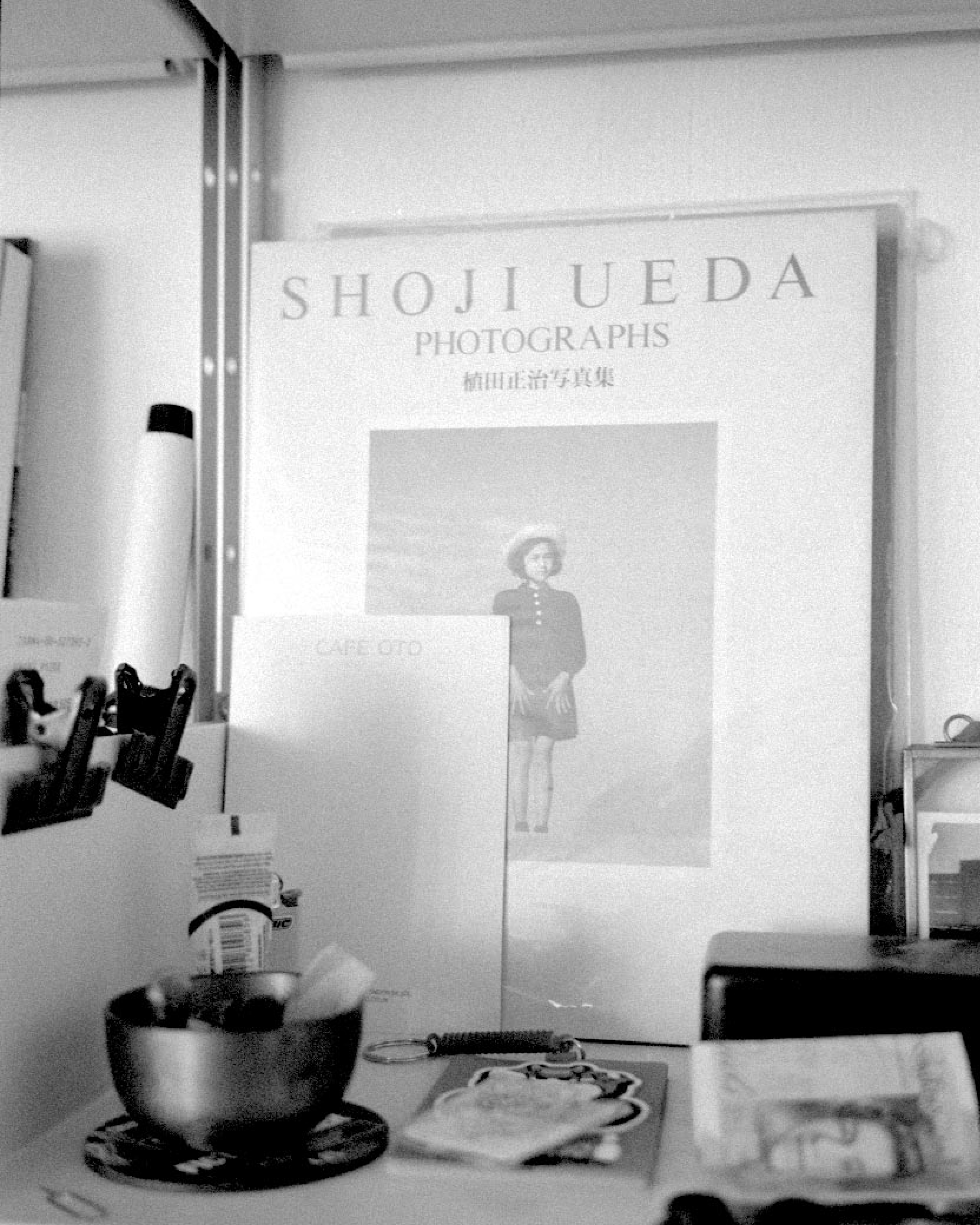
Are consumers really that loyal anymore?
Helen: I don’t think so, there isn’t much brand loyalty. But then again there’s a geographic split. For years, no one in the US was wearing Adidas shoes, it was all Nike. But the next drop can change everything, as long as the right person is attached. Crocs is a huge brand now, because they’ve started operating the same way, by the drop model.
And it still works.
Helen: It was brought around by the pandemic. I’m a bit bored of that now, I want to wear something uncomfortable and restrictive!
Bang on trend with the straight jacket then! ●